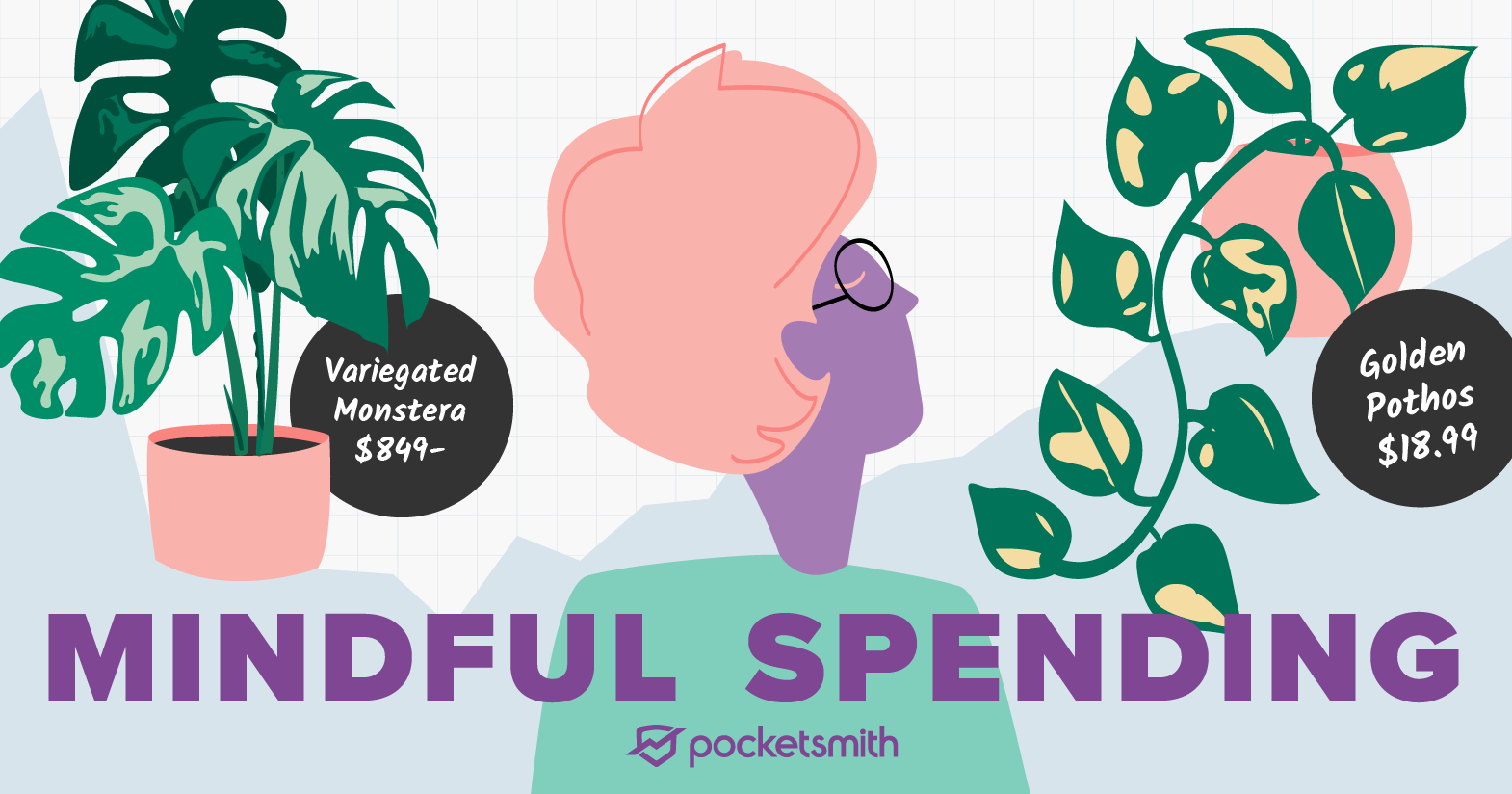
Mindfulness has become a popular buzzword for just about anything, from meditation and self-care to yes, you guessed it, your finances. Practicing mindful spending can help you feel more in control and confident with your money, by optimizing your spending to allow you everything you love, and nothing you don’t.
Mindful spending is all about getting to know yourself and what you truly want out of life, and applying that understanding to your purchase decisions. We’re all guilty of buying things we regret, but when we’re spending mindfully, it becomes natural to assess purchase decisions based on their long-term value and alignment with our goals.
Mindful spending has several benefits beyond just your finances. Of course, changing your spending habits can reduce excess expenses and leave you with more cash to stash, but you’ll notice a difference in other areas of your life, too. Mindful spending means buying better and buying right. That means you’ll collect less clutter in your home, and likely lean towards better quality, longer-lasting products that make life easier and way more enjoyable.
Mindful spending also allows you to keep spending on things that bring you joy – shout out to Marie Kondo — while still bossing your budget. When you master mindful spending, you learn to buy according to your lifestyle goals, leaving you feeling more abundant and never deprived or restricted. Whether you’re retirement planning or saving for travel, having your lifestyle goals is in place is incredibly important for you to maintain your mindful spending into the future.
Mindful spending can also bring a sense of control and stability to periods of uncertainty (ahem, we’re looking at you, 2020). Being able to make conscious spending decisions rather than mindless impulse purchases helps you maintain a sense of intention around your money, rather than using shopping to soothe your anxiety. Having that control can allow you to save more of your money and create security for your future financial goals.
We hear you! A bit like switching cakes and doughnuts for apples and rice crackers, mindful spending sounds great on paper, but the execution? That’s where things get tough.
Accept that mindful spending is a journey; a constant muscle to strengthen over time. You probably won’t just wake up one day and be a pro-mindful spender, but you can take regular steps towards crushing it at spending mindfully. Here’s how:
Umm… everyone! Mindful spending can benefit all of us, but it can be particularly helpful for those on fluctuating incomes, or times when you’re trying to be extra careful with your money. Using mindful spending to think ahead rather than make decisions in the moment can save you money and factor in your wider financial lifestyle.
Feeling inspired? Mindful spending can also help you get out of debt, by breaking the spending cycle and cutting the impulse to tap that plastic. With more people than ever being burdened by a mountain of student loans and credit card debt, mindful spending can be key to a healthy financial future.
Emma Edwards is a finance copywriter and blogger, on a mission to humanize the financial services industry by creating meaningful content that’s accessible and empowering. You’ll find her penning money tips at her blog, The Broke Generation, sharing financial insights on Instagram, or injecting life into content for her business clients.